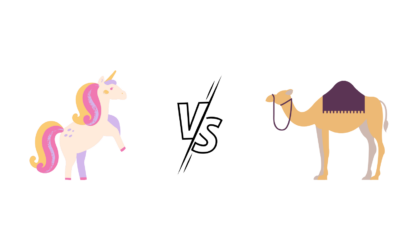Good news: exercise is good for your brain.
I suppose that’s not exactly news—many of us have been told that exercise releases endorphins. Runners talk about a ‘high’ that they get after completing a great run. The connection between mental health and exercise has been well-studied in the past decades.
But Dr. Diane Ehlers, an assistant professor of neurological sciences at UNMC, is looking at the impacts of exercise on different parts of the brain. Her research focuses on how physical activity can mitigate the cognitive effects of aging.

Dr. Diane Ehlers, assistant professor of neurological sciences
On Sept. 1, Dr. Ehlers hosted a virtual event to discuss the science of exercise and brain health.
Contrary to popular belief, physical activity and exercise are two different things. Physical activity is any bodily movement which results in energy expenditure—so when you get up to get water at your office, you are technically physically active. Exercise, which is a type of physical activity, is structured, repetitive, and goal oriented.
Both have been studied as to how they impact aging, but there is more data surrounding the effects of structured exercise. In mouse models and human studies alike, exercise has been related to increases in neurogenesis, synaptogenesis, angiogenesis, hippocampal volume, and more.
If you are anything like me, these words don’t mean much on face value. Let’s dig into how these brain processes work, and how exercise can help mitigate the effects of aging.
Neurogenesis is the process by which new neurons are formed in the brain. Neurogenesis decreases with age, but adult brains still produce new neurons. Research in the field has consistently shown that activity (be it physical or cognitive) can help older adults produce more neurons and counteract some effects of aging.
Less-studied with relation to aging but still important is the process of synaptogenesis—a complex process which involves the development of new synapses and the maintenance of existing ones.
In typical adults, both of these processes slow down with age. Regular, sustained exercise can help keep these important neurocognitive processes going strong.
What I found most interesting was that exercise has been connected with an increase in hippocampal volume in aging adults. Your hippocampus is one of the most important parts of the brain—it has been associated with reaction speed, memory, abstract thought, and spatial navigation. Multiple studies have shown that aerobic exercise increases hippocampal volume in different groups of people—such as older women with mild cognitive impairments, people living with Multiple Sclerosis, and many others.
We are all going through the process of aging—no matter what stage we are at. Dr. Ehlers emphasizes that any physical activity at any point in life is going to impact you positively.
“So that’s good news, everyone,” she joked. “Anything is better than nothing. Take the stairs, go to the bathroom on another floor. There is some suggestion that it is associated with health benefits.”




